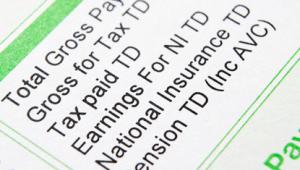Teachers will have to wait months longer than other public sector workers before finding out if they are to move to localised pay, it has been revealed.
Education Secretary Michael Gove’s evidence to the independent School Teachers’ Review Body yesterday included proposals for an end to national pay bargaining for teachers.This follows last year’s Autumn Statement, when Chancellor George Osborne asked the review bodies to consider how to introduce ‘greater flexibility’ to make pay ‘more responsive to local labour markets’.
The bodies are also examining how to introduce local pay for NHS employees, prison staff and senior civil servants and have been told to ‘report back by July next year’.
However, Gove’s submission revealed that recommendations for teachers will not emerge until the Autumn.
A DfE spokesman told Public Finance that this was always the intention of the review, and was consistent with the timing of the review body’s annual report to ministers. This could be produced by October.
Gove’s submission said that reforms would provide schools with extra freedom to ‘attract the highest performing graduates and professionals into the profession’.
Under the current system, there is both automatic pay progression and national pay scales for teachers, which the government has argued leads to a poor link between performance and reward.
Among the options set out for the board to consider is a plan for only minimum and maximum levels of teacher pay to be set. Other possibilities include replacing the current national deal with local pay zones and giving schools greater flexibility to set pay rates within the existing arrangements.
Changes were needed to ‘drive up the quality of teaching and standards in schools’, and could also encourage the best teachers to work in the most challenging schools, Gove added.
However, the National Union of Teachers said the changes would be ‘completely inappropriate’.
General secretary Christine Blower said that they ‘fly in the face’ of evidence from the Organisation for Economic Co-operation and Development that performance-related pay in schools does not help to raise standards.
A ‘majority of teachers support the current pay arrangements whereby teachers on the main pay scale get a pay increase unless their performance is deemed unsatisfactory’, she added.
‘National pay scales for teachers give a transparency and ensure much greater fairness and non-discrimination than pay levels determined at school level, and should remain. Education is a nationally delivered service so local pay for a teacher is completely inappropriate.’





















